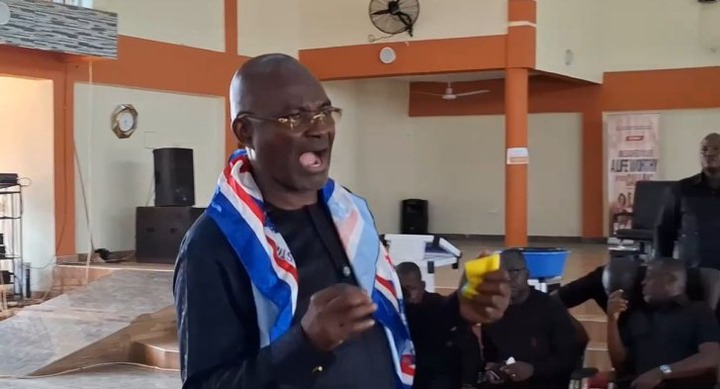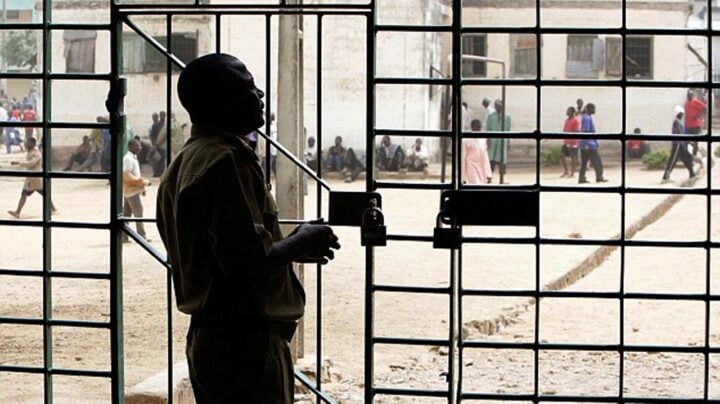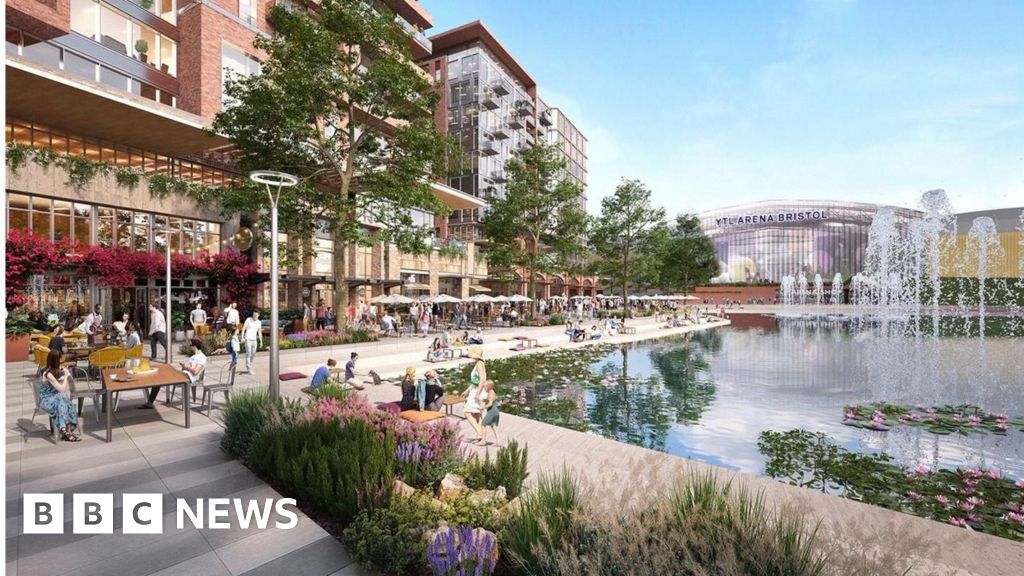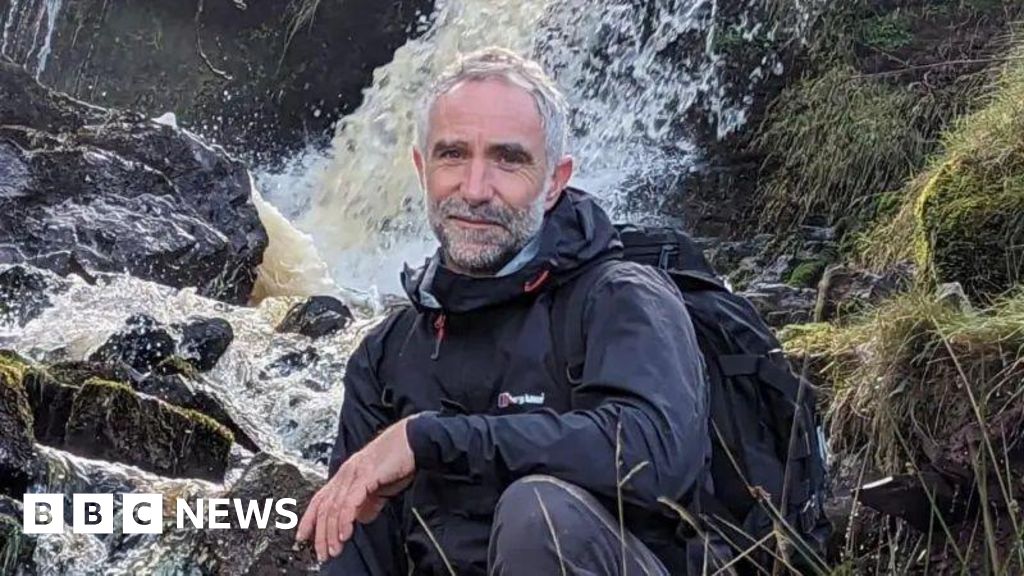Weca mayoral elections: Candidates do not back Park Street car ban
Bristol City Council's Green councillors approved the £15m plan to limit Park Street to only buses, cyclists and pedestrians at a meeting in March.
Not one of the candidates raised their hands in support of the plan - including Green Party hopeful Mary Page.
Reform candidate Arron Banks described the scheme as a "terrible idea", adding that businesses on the street had been forgotten.
Pointing to a scheme banning through traffic from part of central Thornbury, where he lives, Mr Banks said it has created "a ghost town".
"You've got to have some consideration for the people who trade there and it kills the vibrancy of it," he said.

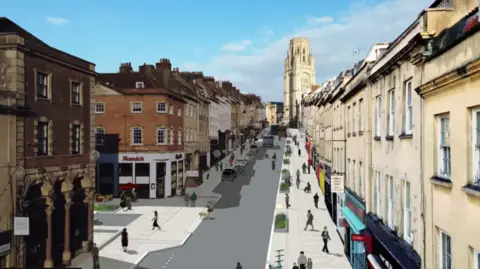 Bristol City Council
Bristol City Council
Labour candidate Helen Godwin said she was "very unsure" about the scheme, raising concerns about traffic instead being directed past the Bristol Royal Hospital for Children and the Bristol Royal Infirmary which she described as "already one of the most polluted streets in the country".
She added that she was "not convinced" of the need for a bus gate on Park Street, having travelled through the area by bus during the morning rush hour without seeing heavy traffic.
On 1 May voters will head to polling stations to pick their new mayor of the West of England Combined Authority.
Made up of Bristol, Bath and North East Somerset (Banes) and South Gloucestershire, the combined authority holds power over transport, skills, economic development and planning in the region.
Decisions made by Weca, however, require the agreement of other council leaders.
During the BBC election debate, some of the candidates set out their transport plans if they were to be elected as Weca mayor.
Mr Scott suggested building an efficient mass transit system, which could include underground tunnels.
"I think we're probably the biggest conurbation in Western Europe without any of that," he said.
"The Victorians were about to put a tunnel under the Downs, so of course all these things are possible but we do need to get back our fair share of the money to make it feasible."
Ms Godwin echoed Mr Scott's views, and said the buses should be the first point of call.
"We're seeing routes changed last minute, we're seeing people who can't rely on the bus to where they need to get to," she said.
"My first priority is getting the buses working so that people can get to work on time."
Mr Henman said a light rail transit system is "absolutely essential" for filling the city's public transport gap.
"I think we could pull together a regional infrastructure investment fund to actually get money into that infrastructure that draws in private money alongside public money," he explained.
Mr Banks said he wanted to stop the "war on cars" in Bristol. However, he said he agreed with the other candidates views on the buses.
"The Labour mayor spent nearly £40m on turning it into a green bus service and then ended up cutting 50% of the subsidised bus routes because there wasn't enough money," he said.
"Frankly, it's pie in the sky that there's going to be an underground in Bristol, it's not a big enough city for that."
Ms Page said she planned to franchise bus services in the city, which could mean taking control of the routes and ticket prices.
"I think it's really, really important that we have that control so we can provide buses in rural areas," she said
Mr Smith said he would scrap the plan for new bus lanes down the Keynsham Bypass and said he would not provide funding to Bristol City Council to close Park Street.
"I hear from people all over the region that they're being punished for using their car to drive around, when a lot of the time there really isn't a choice.
"I think people are sick of politicians like us telling them how we think they ought to live or how we think they ought to travel."


